20 years of New Who
 At that time - before Life on Mars or Afterlife or Primeval or Being Human (many of which were green-lit on the back of Who's revival - genre shows barely got a look-in in this country. CBBC had always done a decent trade, with dramas like Aquila and The Demon Headmaster, but after 5pm the only shows you were likely to see were American imports. And don't get me wrong, Buffy et al were brilliant, but now and then I had a hankering for a show where weird things happened in the sort of town where they had a WHSmith.
At that time - before Life on Mars or Afterlife or Primeval or Being Human (many of which were green-lit on the back of Who's revival - genre shows barely got a look-in in this country. CBBC had always done a decent trade, with dramas like Aquila and The Demon Headmaster, but after 5pm the only shows you were likely to see were American imports. And don't get me wrong, Buffy et al were brilliant, but now and then I had a hankering for a show where weird things happened in the sort of town where they had a WHSmith.Rose (S1, Ep. 1):
Truth be told, Doctor Who's "event episodes" - be they season finales or Christmas specials - tend to disappoint. But it would be hard to compile a list like this that leaves out the script that started it all. The title hints at what would prove a dramatic rewriting of the show's DNA; the companion character is no longer simply a sounding board for the Time Lord she's travelling with. On the contrary this is now her story - the story of a listless, teenage shop-worker into whose life a mysterious alien happens to blunder. However many cast changes later the new dynamic introduced by Russell T. Davies is still at the heart of the show.
Dalek (S1, Ep. 6):
By the early 21st century, one of sci-fi's most famous aliens had been reduced to roll-on parts in light entertainment programmes and comedy sketches. Making the Doctor's oldest adversary scary again was an essential task for the production team. This tense tale - set entirely in an underground bunker - proves the perfect reintroduction. Resisting the urge to radically alter the classic "pepperpot" design, the story instead relies on a tour-de-force performance by Christopher Eccleston to sell the threat. Watching the Doctor shift so quickly from fear to fury to outright revulsion when he comes face to face with the creature is quite something **.
The Empty Child/The Doctor Dances (S1, Ep. 9-10):
This period two-parter, set at the height of the London Blitz, marked the arrival of future showrunner Steven Moffat. While the first year had energy and emotion in abundance, it was sometimes lacking in more traditional sci-fi stories. This tale of alien tech gone wrong, a Moffat staple, thus provides welcome heft to the second half of the series. Eccleston has since described these episodes as the best of his one-year run and certainly the feel-good finale gives a Doctor usually known for his tortured moments perhaps his most memorable scenes. More generally the story - commonly known as "the one with the boy in the gas mask" - confirmed that New Who was traumatising a new generation of youngsters.
School Reunion (S2, Ep. 3):
By the time David Tennant took over the Tardis the following year, the series already felt firmly part of Saturday nights. The warm response of critics and excellent viewing figures perhaps provided Russell T Davies the leeway to make more explicit links to the original run. Hence a nostalgia-fuelled return for 70s companion Sarah-Jane Smith and cybernetic sidekick K9. Writer Toby Whithouse, later of Being Human fame, expertly blended the comedy of "missus meets the ex" embarrassment with a more poignant reflection on the Doctor's impact on human lives. And for the kiddies there was Anthony Head, playing the leader of some angry bat things.
The Impossible Planet/The Satan Pit (S2, Ep. 8-9):
It was quite a while before the Tardis left Earth's orbit and headed off to alien worlds, but it was certainly worth the wait. The Doctor and Rose find themselves stranded on a desolate hunk of rock alongside an increasingly unnerved crew of human expeditionaries and an ancient entity which might just be the Devil. The paranormal overtones invoke the "gothic horror" of vintage Tom Baker stories, while a depiction of space travel worlds away from glamorous starliners add to one of the darkest instalments (figuratively and literally) to date. Meanwhile the emergence of an apparently demonic force and its hive-mind servants at the end of part one demonstrated that the iconic cliffhanger was alive and well in the 21st century.
The Shakespeare Code (S3, Ep. 2):
On the face of it a rather routine "monster-of-the-week" episode, it also exemplifies the show at its most confident and charming. Named at the time as the most expensive entry of the modern era, the story sees the Doctor and new companion Martha Jones arrive in an utterly sumptuous Elizabethan London. A year into the role Tennant is already at the peak of his powers, while the script is equal parts ebullient, ingenious and mad. A trio of witchy-things from the dawn of the universe are trying to destroy the world and only the most brilliant writer in history and his new friends can stop them. You don't get cover blurbs like that in your Star Trek box-set.
Human Nature/Family of Blood (S3, Ep. 8-9):
With the middle two-parter's reputation as a darker, more emotional story already established, hopes were high for this adaptation of a popular Dr Who novel from the 1990s. In an attempt to escape alien hunters, our Time Lord surrenders his memories and makes himself a human life in an Edwardian village. He settles down, falls in love and... it all goes disastrously wrong. A wintry countryside, a year before the First World War, offers a suitably bleak backdrop for what is often a very adult adventure. The story grapples with the horrors of conflict, racial prejudice and the capacity for someone even as powerful as the Doctor to make terrible misjudgements. From the crooked smiles of the titular villains to the heartbreaking final act, this is the proof that the show doesn't need its hero to be at its best.
Blink (S3, Ep. 10):
It could have been awful couldn't it?. With a deadline rapidly approaching, Moffat lifted elements from a short story he'd previously contributed to the Christmas annual. The episode had been designated as the "cheap one" from that year's run and scheduling clashes meant there would be limited screen-time for the main-cast. But then it just so happens that future Oscar nominee Carey Mulligan was cast in the lead role. The wholly practical effect Weeping Angels turned out to be the stuff of nightmares. And the script was just about the smartest, scariest, most tightly-written 45 minutes in the show's history. It plays with time travel in a way that a time travel show had never really tried before and the results are outstanding.
Fires of Pompeii (S4, Ep. 2):
Mostly remembered for having both a future Doctor (Peter Capaldi) and companion (Karen Gillan) appearing in guest roles, this visit to the Ancient World is actually rather special in its own right. The arrival of an older confidante less in awe of the Doctor - Catherine Tate's Donna Noble - had proven somewhat controversial given the actress' background as a comedy performer. And certainly the knock-about antics early in the episode make great use of her sketch show experience. But as events unravel and disaster hits Pompeii, Tate's tearful indignation destroys any suggestion of stunt-casting. She's incredible. Few shows can turn from slapstick to tragedy quite so brilliantly and few episodes encapsulate this tendency better than this one.
Midnight (S4, Ep. 10):
Russell T Davies' tendency to pen openers, finales and Christmas day specials sometimes meant that he didn't get a crack at the slightly edgier episodes which often end up as fan favourites. Here in another low-budget effort he gives us one of the tensest entries yet. The Doctor's off, without Donna, for a ride on a pleasure shuttle. But hopes of a jolly jaunt vanish when an unseen alien intelligence possesses one of the passengers. As fear and suspicion take hold, we get a glimpse of a hero increasingly out of his depth. For a show that is so often ferociously optimistic about humanity, this is a surprisingly stark reflection on our darker nature.
Waters of Mars (Specials):
The Tenth Doctor's farewell tour - encompassing a set of slightly longer than usual specials - allowed for some very ambitious stories. Arguably his swansong - The End of Time two-parter - buckles under the weight of trying to close-out perhaps the most popular tenure in the show's history. His penultimate adventure is perhaps a far better summation of Tennant's time in the role. It builds on the sense of survivors' guilt that had dogged the character since his return in 2005 and returns to the notion that travelling alone can be dangerous for a man of almost god-like capabilities. But now it pushes this angst to a point of crisis in a way that is perhaps only possible when an incarnation is nearing the end. The final 10 minutes is shocking and stirring and unnerving all at once. What on Mars has he done?
The Eleventh Hour (S5, Ep. 1):
A new decade, a new Doctor and a new production team in place. With fears within the BBC that it would be impossible to replace the phenomenally successful Tennant, the stakes were undeniably high. As it happens Moffat delivers a pitch-perfect 60 minutes which, in hindsight, acts as a sort of soft reboot for the series. Davies opened proceedings on a London council estate, while his successor shifts focus to a village with a slightly fairytale aesthetic. The episodic approach is replaced by a much tighter series-arc. Matt Smith meanwhile, in perhaps the most frenetic debut of any Doctor, sets out his stall as a more awkward, eccentric individual. The future very quickly seemed assured... and it had a kick-arse new theme to go with it.
Time of Angels/Flesh & Stone (S5, Ep. 4-5):
There was an obvious incentive to leave the Weeping Angels as a wonderful one-off monster, but the temptation to bring them back ultimately proved too strong. This is very much the Aliens to Blink's Alien, swapping clammy horror for more of an all-out thrill ride. We're even introduced to Who's answer to Colonial Marines in the Clerics - basically tooled-up churchmen. This episode is also notable for bringing back time-travelling archaeologist River Song, whose repeat appearances would become a crucial part of this period.
Amy's Choice (S5, Ep. 7):
A hidden gem in the middle of Smith's incredibly strong first year. Our heroes flit constantly between two realities at a point of crisis, not sure which is real life and which is a dream state. Goading and probing them in both places is the Dream Lord, wonderfully played by Toby Jones. Moffat's era is sometimes accused of neglecting character in favour of plot but this proves to be a wonderful showcase of our main characters. And the twist ending definitely rewards a swift rewatch.
A Christmas Carol (S5 Xmas Special):
Handed the unenviable task of trying to engage an audience stuffed with turkey and mince pies - half of whom probably aren't regular viewers - the Who Christmas special has often proved to be something of a poisoned chalice. This sci-fi take on the classic Dickens story was a rare example of the series successfully juggling a big, bold concept and the usual festive trappings. While Moffat's timey-wimey antics would eventually lose their novelty, here is one of the single best examples from early on - as the Doctor weaves his way through the life of callous miser Kazran Sardick. It helps that Sardick is played by the late Michel Gambon, in a rare instance of a big-name guest actually being given a decent amount to do.
The Doctor's Wife (S6, Ep. 4):
Inevitably the episode's standing has been tarnished by the recent flurry of allegations levelled at its author Neil Gaiman. In the very different context of 2011, it was seen as an immense coup to have secured a script from someone of Gaiman's stature. It is a suitably imaginative offering and the budget just about keeps up with the vision, even if the some compromises were needed to get from page to screen. Visuals aside the story will be remembered for finally giving the Doctor the chance of a heart-to-heart with his travelling machine.
The Rings of Akhaten (S7, Ep. 2):
The basic premises was that we'd finally get to see one of the wonders of the galaxy the Doctor is always promising to visit before a little local difficulty or obstinate Tardis (see above) re-routes him to somewhere less glamorous. Akhaten is a visually-lovely episode which perhaps edges the closest to presenting a purely alien culture since the classic series. It also has a wonderfully bonkers ending of the sort only Doctor Who can deliver, as Clara ends the tyrannical reign of a living sun with a leaf.
Day of the Doctor (50th Special):
A feature-length 50th anniversary special, shown in cinemas and across TV networks in a simultaneous broadcast across 94 countries - it's fair to say there was a lot riding on this one. And Steven Moffat certainly didn't pull his punches. David Tennant returned and acting royalty John Hurt was cast as a hitherto secret incarnation. The episode paid off almost a decade of Time War backstory, brought back a fan favourite monster and made a long-running joke about an apparent liaison with Elizabeth I a major plot point. There was UNIT and Daleks and Gallifrey and finally, when everything stopped, an unmistakable voice off camera - the best surprise cameo in an art gallery since John Cleese had popped up in a Douglas Adams script 35 years earlier. All-in-all simply sensational.
Flatline (S8, Ep. 9):
Jamie Mathieson in many ways felt like Steven Moffat's Moffat, the guest-writer who could always be relied on to turn in popular stories. Flatline is a typically excellent effort, pitting the Doctor and Clara against invaders from a 2D dimension. The story benefits from two facets which had become somewhat unfashionable by this stage in the revival - a modern-day city setting and a more typically heroic Doctor (Peter Capaldi played the man as a bastard for much of his first year). It also deserves a place on the list simply for having perhaps the best take on the "train approaching" action sequence in the history of fiction.
Heaven Sent (S9, Ep. 11):
From barely any Doctor in Blink to an episode where there's nothing but the Doctor. In what is the show's first ever single-hander, the Time Lord finds himself trapped in a racketty, rotating castle. Moffat's spin on that genre classic, the time loop, is every bit as clever as you'd expect, but it's Capaldi's performance and some excellent direction that really elevate the story. In a poll for the show's 60th anniversary, in 2023, this tale was named fans' favourite episode of all time. Certainly there's been nothing like it before or since.
Smile (S10, Ep. 2):
Capaldi's third year happily happens to be his best. A new companion - the straight-talking Bill Potts - and a back to basics approach allow both the leading man and Moffat himself to leave on a high. Smile doesn't offer all that much new - it's basically a boilerplate robots gone wrong story. But it's a cracking script from former children's laureate Frank Cottrell-Boyce and a location shoot in Spain makes for one of the most ambitious alien landscapes so far.
World Enough & Time/The Doctor Falls (S10, Ep. 11-12):
To misquote a certain UNIT soldier - "finally, a finale that works." Despite, or perhaps because, of a landmark moment - a companion's goodbye, a regeneration - climactic episodes have often fallen flat. The conclusion of Peter Capaldi's third year is a rare case of all the disparate ideas managing to hang together. We have the first-ever multi Master story - on TV at least - and an origin story of sorts for the Cyberman. But alongside all the bangs and whistle there's some genuinely gut-wrenching moments. Although Capaldi's regeneration would ultimately be deferred to the Christmas special, this would have been perhaps a more effective end to his time.
78 Yards (S14, Ep. 4):
As Doctor Who entered a new era, much was made of a new partnership with Disney Plus and an accompanying injection of cash. Ironically one of the stand-out stories of Ncuti Gatwa's first year is not a sci-fi spectacular but a rather more offbeat offering. The episode switches from a MR James-esque visit to the Welsh countryside to a near-future dystopia. All-in-all it is a rather haunting story even if there are too many loose ends left when the credits roll.
Dot and Bubble (S14, Ep.6):
One of Doctor Who's greatest strengths has always been its versatility, with each episode having a look and tone of its own. This pastel-coloured dystopia - in which social media has effectively ruined humanity - owes more than a little to Charlie Brooker's Black Mirror series. But in the context of Dr Who it's remarkably fresh. The closing scenes, powered by Gatwa's performance, also give a lie to the notion that Dr Who should avoid tackling real-world issues. Far from being some knee-jerk response to so-called woke trends in entertainment***, grappling with these themes is at the heart of the format. Long may it continue...
* - As a reporter I interviewed Derek Jacobi, Neve McIntosh and Dalek operator Barnaby Edwards in a less than subtle attempt to geekify the arts pages.
** - Although the strikingly prescient inclusion of a tech-billionaire who chooses Presidents is proof that not every monster comes encased in metal.
*** - So-called by arseholes.







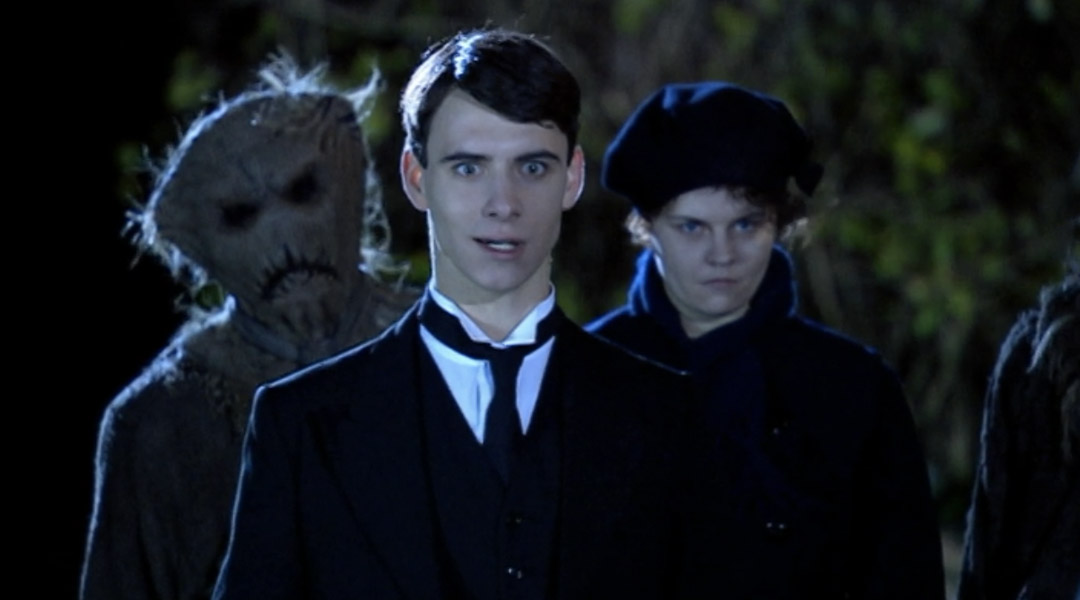
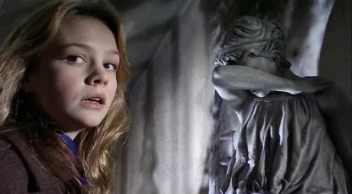








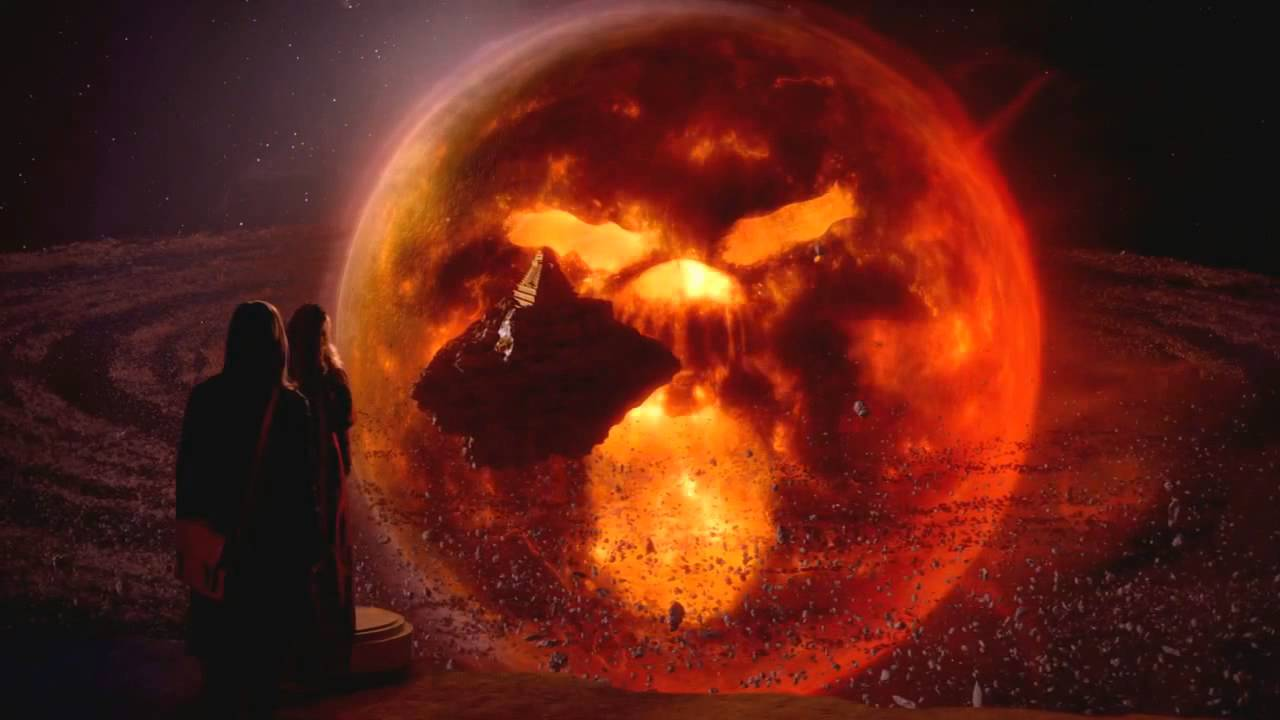
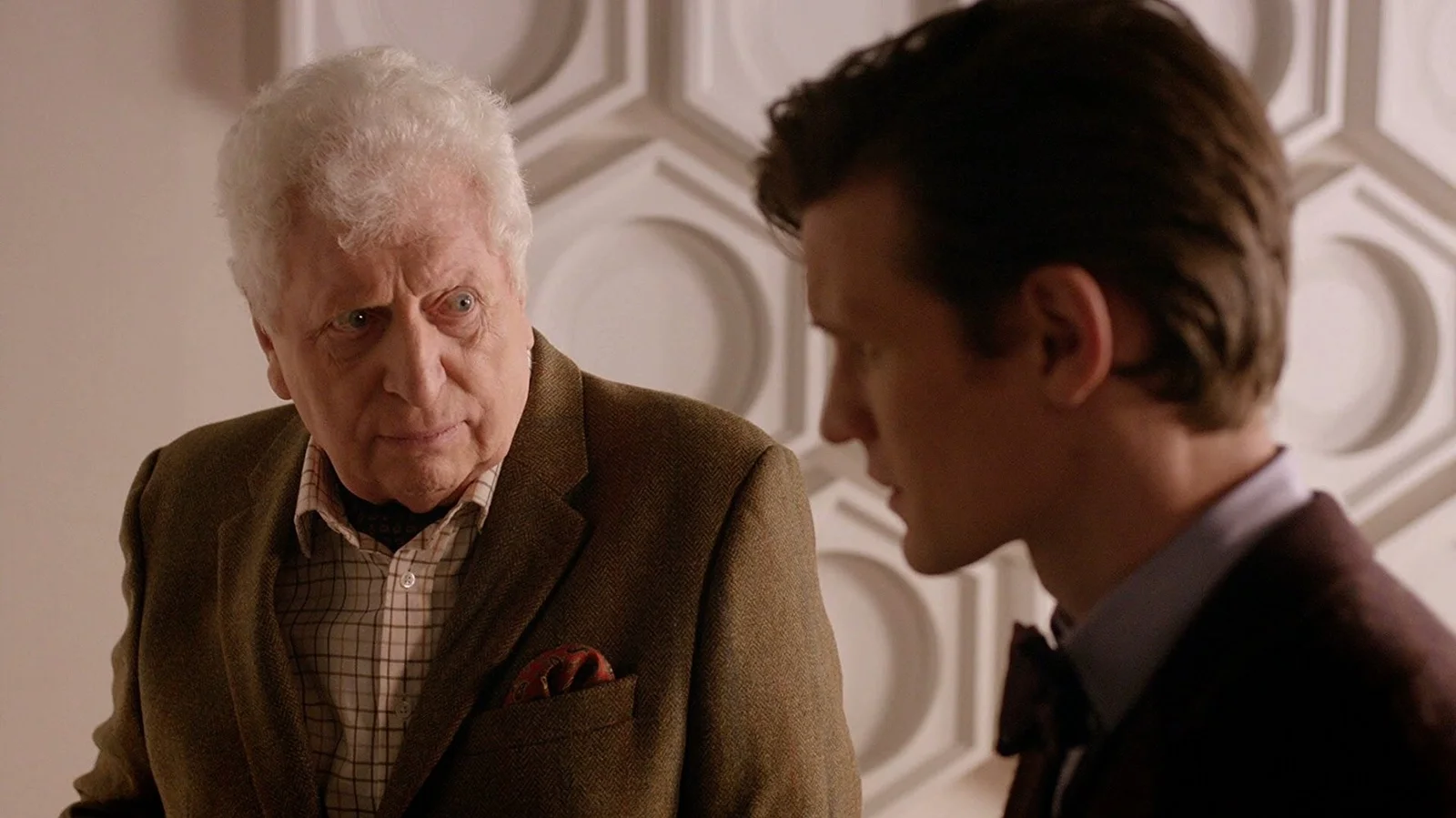

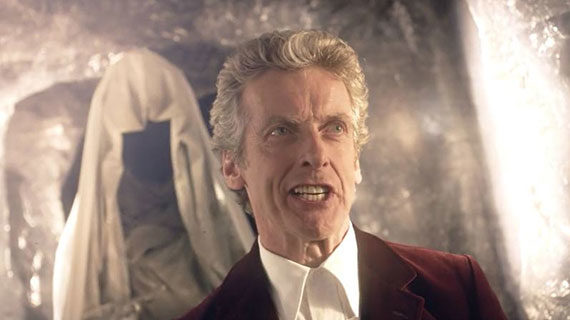






Comments
Post a Comment